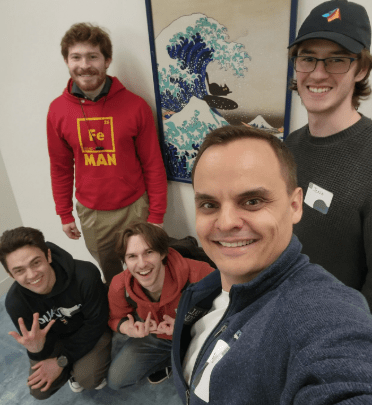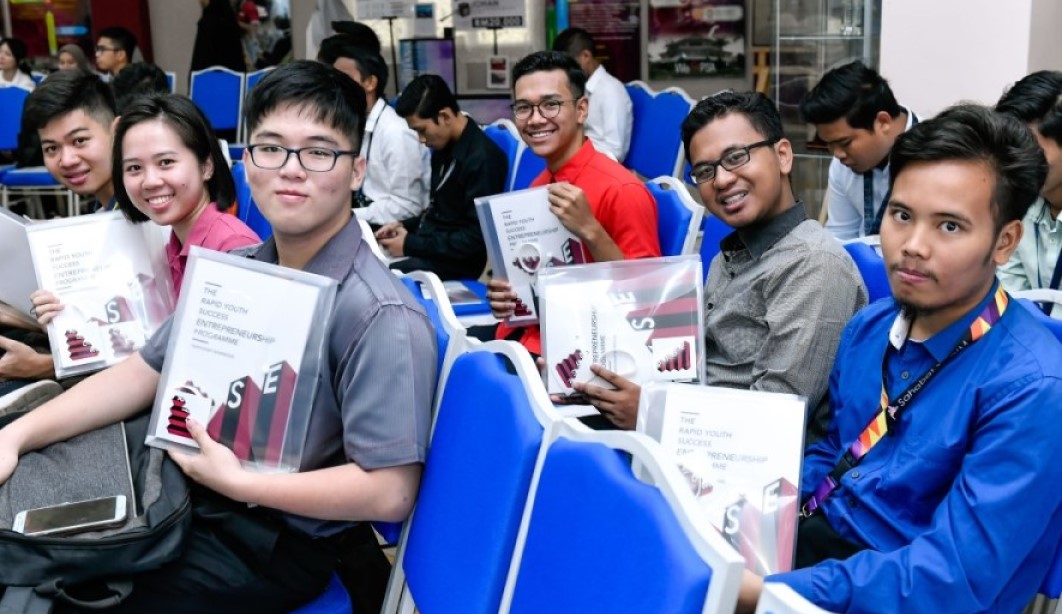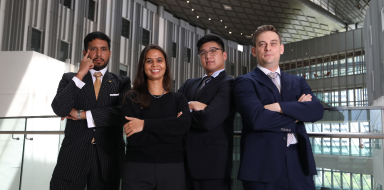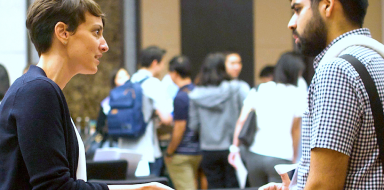ASB Blog
Engage with student-authored blogs, gain insights from thought leadership articles by faculty and opinion leaders, and stay updated with our corporate buzz feed.
Latest in ASB
- All
- Student Experience
- Thought Leadership

Five Step-Ups for Boosting Board Performance Self-Awareness
by Gabe Shawn Varges

It Takes a Village: Studying, Parenting, and Extracurriculars at Yale SOM
May 21, 2025 In this episode of MAM Admissions Unplugged, we sit down with current SOM students who are also parents to hear their honest experiences navigating life at Yale SOM. From managing academics and extracurriculars to finding support in the Yale and New Haven communities, our guests share practical advice, personal stories, and what […]

A Sleepless, Wonderful Weekend: Taking Home the Prize at the YQuantum 2025 Hackathon
June 6, 2025 Vlad Gaylun ’25, a graduate of the MAM program, participated in a weekend-long competition that connected Yale students to local leaders in quantum computing. As the sun rose over Yale University on a Sunday morning in April, our team felt nervous, exhausted, and excited. After a long weekend with no sleep and […]

2025 FOBISIA Student Leadership Conference
Will AI make you a better leader—or just a faster one? That was the central question explored at the 2025 FOBISIA Student Leadership Conference, hosted by Epsom College in Malaysia, where Key Stage 3 and 4 student leaders from top British International Schools across Asia gathered for a 5-day immersive journey into the future of leadership in […]

From Langkawi to MIT: How Eizaz Azhar Defied the Odds to Pursue an MBA at Asia School of Business
At 14, island boy Eizaz Azhar, made a life-changing decision—he walked away from his school with no formal qualifications. What seemed like an unconventional and risky move at the time laid the foundation for an extraordinary journey, culminating in his acceptance into the prestigious Asia School of Business (ASB) MBA program, a collaboration with MIT […]

Nik Aisyah Amirah: Strategically Shaping the Future
Nik Aisyah Amirah’s career trajectory is nothing short of remarkable, especially for someone who is only 37. As the Chief Strategy Officer of Sapura Group and recently a Board Member of a public listed company, she has navigated diverse industries, spearheaded complex projects, and demonstrated unwavering leadership in the face of challenges. From an ambitious […]

ACEing It: The Power of Flexibility in Continuous Learning
Flexibility has positive value. Be it in our careers, savings and investments scheme, or in policy making. Part of the reason for this is forecasting future events is fraught with uncertainty. Whether it’s the direction of our local stock market, our salary in 20 years, or the value of the Malaysian ringgit against other currencies […]

Helping Youth RYSE: ARC Supports Malaysia’s Next Generation in Overcoming Unemployment
During a time of economic transformation, the issue of youth unemployment looms large in the consciousness of every Malaysian. As of December 2023, youths accounted for 432,100 out of 567,800 jobless Malaysians, with the 15–30-year-old age group making up a whopping 76 percent of unemployed individuals. While this challenge is not Malaysia’s alone, the ASEAN […]

Khadijah Shamsul’s Changemaking Journey: From Debate Coach to Refugee Advocate, Now Championing Education for All
Bubbly, personable, and intelligent, Khadijah Shamsul has made change-making a personal mission from the very start of her career. In 2015, driven by a passion to instill confidence, self-worth, and identity in the next generation, Khadijah and her husband, Sheikh Faizal, founded NOUS Academy. As debaters in university days who have won awards and travelled […]

Future-Ready Finance ASB’s ACE Course: Corporate Finance
Corporate finance is the backbone of both startups and large corporations, often making the difference between thriving and failing. In today’s fast-paced business landscape, the CFO’s ability to balance revenue growth with shareholder value is more crucial than ever. “Corporate finance is the lifeblood of any business, driving growth and ensuring long-term stability,” says Joseph […]
— ASB YOUTUBE
Explore Our YouTube Channel
Discover our past events, indulge in thought-provoking podcasts, and gain insights from engaging interviews. Embark on a journey of knowledge and inspiration with us as you explore the wealth of resources available.







